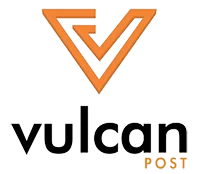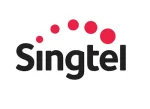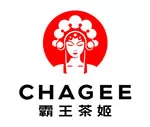




















Impossible Marketing is a multi-award-winning and AI-driven SEO agency, proudly headquartered in Singapore since 2012. 100% locally owned and led by Singaporean leaders, we have been helping businesses of all sizes dominate local search and connect with customers right here at home.
For over a decade, we’ve worked side by side with thousands of Singaporean SMEs and enterprises, guiding them to grow, connect, and stand out online. From F&B outlets and retail brands to financial institutions and education providers, our local SEO strategies are designed to capture “near me” searches, Google Business Profile traffic, and location-based visibility that directly drives footfall and leads.
This dedication has earned us recognition in the industry, including:
But more importantly, we’ve earned the trust of the Singapore business community. With over 700 verified reviews, the most of any SEO agency in Singapore, our clients’ voices speak for the strong relationships and results we’ve built together.
At Impossible Marketing, we don’t just understand SEO — we understand Singapore. From local consumer behaviour to industry-specific challenges, our strategies are rooted in local insights and backed by global best practices. No shortcuts, no gimmicks — just authentic, locally-focused SEO growth that lasts.
Impossible Marketing is a multi-award-winning and AI-driven SEO agency, proudly headquartered in Singapore since 2012. 100% locally owned and led by Singaporean leaders, we have been helping businesses of all sizes dominate local search and connect with customers right here at home.
For over a decade, we’ve worked side by side with thousands of Singaporean SMEs and enterprises, guiding them to grow, connect, and stand out online. From F&B outlets and retail brands to financial institutions and education providers, our local SEO strategies are designed to capture “near me” searches, Google Business Profile traffic, and location-based visibility that directly drives footfall and leads.
This dedication has earned us recognition in the industry, including:
But more importantly, we’ve earned the trust of the Singapore business community. With over 700 verified reviews, the most of any SEO agency in Singapore, our clients’ voices speak for the strong relationships and results we’ve built together.
At Impossible Marketing, we don’t just understand SEO — we understand Singapore. From local consumer behaviour to industry-specific challenges, our strategies are rooted in local insights and backed by global best practices. No shortcuts, no gimmicks — just authentic, locally-focused SEO growth that lasts.
Google frequently updates GBP with new features like services, Q&A, reviews, booking integrations, and product listings. A fully optimized GBP greatly improves your chances of appearing in the local map pack.
The Vicinity update prioritised proximity to the searcher’s location, making it more important than ever to ensure your address, service areas, and NAP (Name, Address, Phone) are accurate and consistent across all platforms.
Since most local searches (“near me”) happen on mobile, Google now ranks sites based on the mobile version first. Mobile-friendly design and speed are essential for strong local visibility.
Reviews are both trust signals and ranking factors. Frequent, positive, and keyword-rich reviews improve your visibility. Google’s review attributes (like “great service” or “friendly staff”) also boost your local relevance.
Google rewards content that is locally relevant — for example, blogs about Singapore neighbourhoods, local events, or services tailored to Singapore audiences. Its “Helpful Content” update further prioritises content written for users, not just for keywords.
Google Maps updates emphasise businesses with consistent citations, quality local backlinks, and active profiles. Features like photos, Google Posts, and offers inside Maps improve engagement and ranking in “near me” searches.





















Be the first choice customers see when searching in your area.
Local SEO is a specialised branch of search engine optimization that helps businesses appear in location-based searches, especially in the Google Map Pack and “near me” searches.
Traditional SEO aims for broader national or international visibility, while local SEO focuses on reaching customers in a specific geographic area, such as Singapore or even neighbourhoods like Bedok, Jurong, or Tampines.
It relies heavily on:
In short: traditional SEO makes you visible everywhere, local SEO makes you discoverable right where your customers are.
In Singapore, many agencies treat local SEO as an add-on service, typically charging an extra $500 to $1,000 per month on top of their main SEO package.
At Impossible Marketing, local SEO optimisation is included in every SEO package at no additional cost. This means our clients enjoy dual visibility — ranking both on Google’s local business listings (Google Business Profile) and in organic search results.
By making local SEO a standard feature, we ensure our clients maximise exposure without unnecessary add-ons or hidden fees.
One advantage of local SEO is that it’s often faster to rank compared to traditional SEO, since location-based keywords usually face fewer competitors.
Generally, you can see results within 4 to 8 weeks.
That said, speed still depends on factors such as:
The key ranking factors are:
Reviews are a major trust and ranking signal for local SEO. To get more:
Never offer incentives for reviews, as it violates Google’s guidelines and can result in penalties.
Focus on location-based and intent-driven keywords that reflect how Singaporeans actually search:
These capture high-intent customers ready to act.
Localised content builds both trust and relevance. Some approaches include:
This signals to Google and your customers that your business is deeply connected to the community.
It depends on your time, budget, and goals:
Many SMEs in Singapore try DIY first but eventually turn to agencies when they realise the competition and technical requirements involved.
Crucial. With Singapore’s extremely high smartphone usage, most local searches are mobile.
Google’s mobile-first indexing means your mobile site is the primary version Google evaluates. A poor mobile experience can hurt both rankings and conversions.
Mobile optimization requires:
For local businesses, a mobile-friendly site is no longer optional — it’s essential.
Local citations are mentions of your business name, address, and phone (NAP) across directories, review sites, and social platforms.
They matter because:
Inconsistent citations (e.g., mismatched phone numbers or addresses) confuse search engines and can reduce your visibility in local searches.
Local SEO is a specialised branch of search engine optimization that helps businesses appear in location-based searches, especially in the Google Map Pack and “near me” searches.
Traditional SEO aims for broader national or international visibility, while local SEO focuses on reaching customers in a specific geographic area, such as Singapore or even neighbourhoods like Bedok, Jurong, or Tampines.
It relies heavily on:
In short: traditional SEO makes you visible everywhere, local SEO makes you discoverable right where your customers are.
In Singapore, many agencies treat local SEO as an add-on service, typically charging an extra $500 to $1,000 per month on top of their main SEO package.
At Impossible Marketing, local SEO optimisation is included in every SEO package at no additional cost. This means our clients enjoy dual visibility — ranking both on Google’s local business listings (Google Business Profile) and in organic search results.
By making local SEO a standard feature, we ensure our clients maximise exposure without unnecessary add-ons or hidden fees.
One advantage of local SEO is that it’s often faster to rank compared to traditional SEO, since location-based keywords usually face fewer competitors.
Generally, you can see results within 4 to 8 weeks.
That said, speed still depends on factors such as:
The key ranking factors are:
Reviews are a major trust and ranking signal for local SEO. To get more:
Never offer incentives for reviews, as it violates Google’s guidelines and can result in penalties.
Focus on location-based and intent-driven keywords that reflect how Singaporeans actually search:
These capture high-intent customers ready to act.
Localised content builds both trust and relevance. Some approaches include:
This signals to Google and your customers that your business is deeply connected to the community.
It depends on your time, budget, and goals:
Many SMEs in Singapore try DIY first but eventually turn to agencies when they realise the competition and technical requirements involved.
Crucial. With Singapore’s extremely high smartphone usage, most local searches are mobile.
Google’s mobile-first indexing means your mobile site is the primary version Google evaluates. A poor mobile experience can hurt both rankings and conversions.
Mobile optimization requires:
For local businesses, a mobile-friendly site is no longer optional — it’s essential.
Local citations are mentions of your business name, address, and phone (NAP) across directories, review sites, and social platforms.
They matter because:
Inconsistent citations (e.g., mismatched phone numbers or addresses) confuse search engines and can reduce your visibility in local searches.